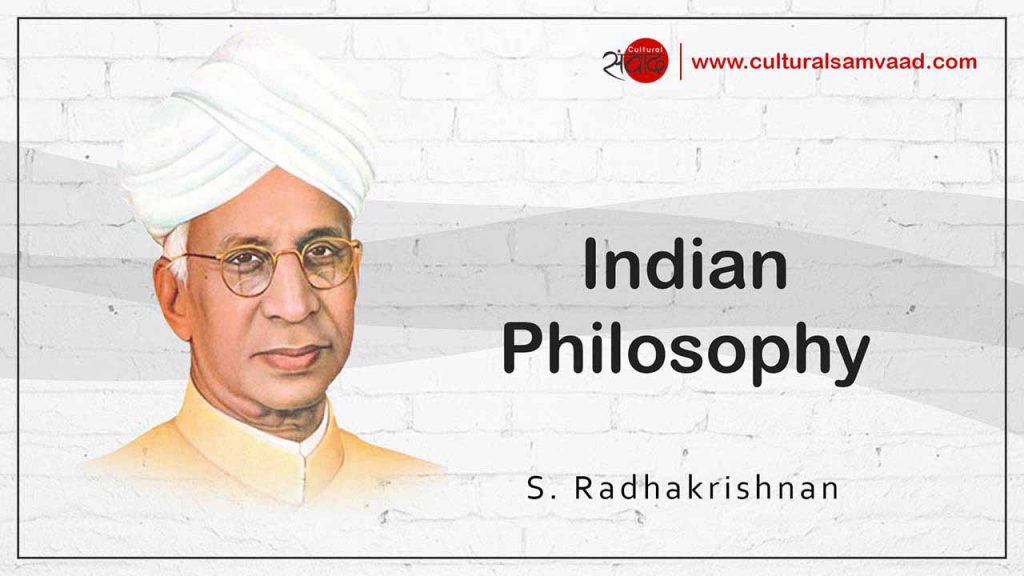 Editor’s Note
Editor’s Note
‘Indian Philosophy’ was written by Dr. Sarvepalli Radhakrishnan almost a century ago. Since then, this timeless masterpiece in two volumes has introduced generations of Indian and western students of religion and philosophy to the development of Indic thought. What makes his discourse particularly remarkable and relevant even in the 21st century is the fact that it came not only from a true child of the soil who was steeped in Indic tradition but also from a professor and student who had assiduously dived into the western tradition.
The first and last chapters of this monumental work resonate even with the lay reader because they provide a broad and multi-variegated framework to approach Indic culture in the current context. Dr. S. Radhakrishnan wrote in old-world English, which is not easy on the modern, casual reader who is more inclined to breezy and short reads on digital media. This summary of the concluding chapter of his work is an attempt to provide a glimpse to today’s reader of the profundity and contemporariness of the thought of one of independent India’s most erudite Presidents and invite her/him to explore the colours of India’s culture and tradition through his works. However, be warned that this is a long read.
The note is structured as a hypothetical interview with a teacher par excellence or rather a true guru to seek answers to questions that are part troubling and part provocative. The words within single inverted commas are direct quotations from the concluding chapter while the balance words are the current author’s own conclusions. The curated quotes are not in order but liberally re-arranged to flow with the chosen format and to clarify rather than confound.
Hypothetical Interview with Dr. Sarvepalli Radhakrishnan
Question:
Indic thought has traditionally been oblivious to change and refuses to change. This is an oft levelled allegation. Do you think that this is borne out by the tradition?
Answer:
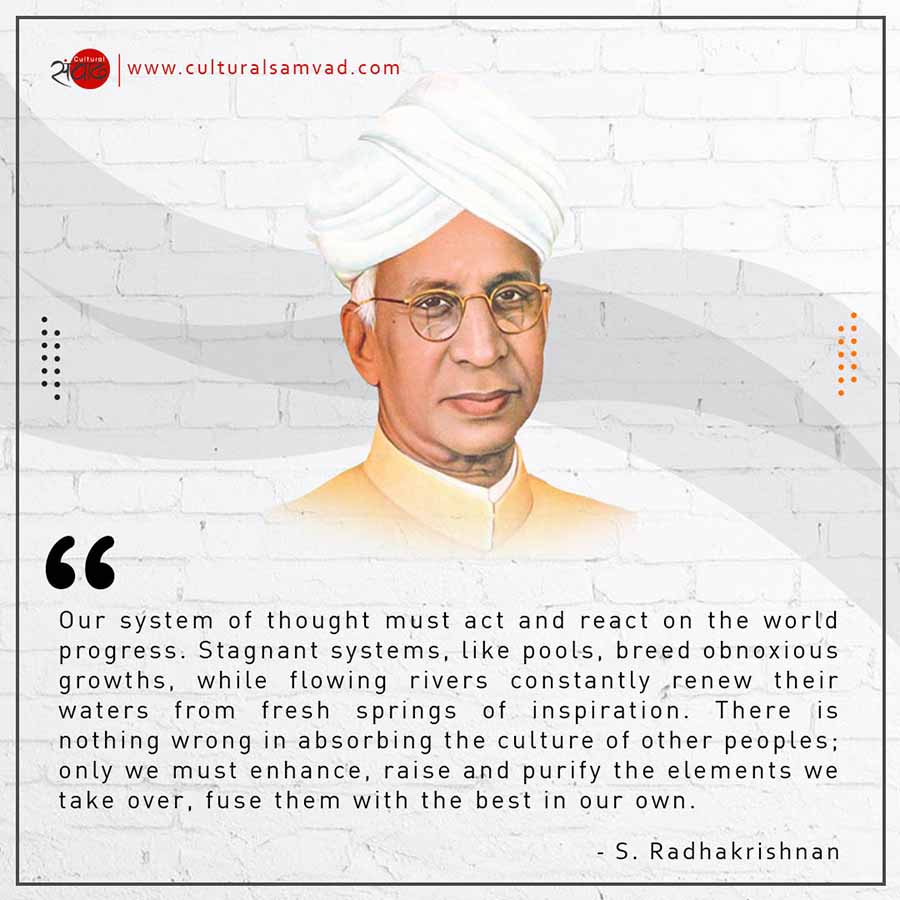 The life of the Indian and consequently Indic thought ‘was ever on the move, shaping itself as it grew, and changing from time to time in relation to its physical, social and cultural contexts.’ ‘The long procession of thinkers struggled hard to add some small piece to the temple of human wisdom, some fresh fragment to the ever-incomplete sum of human knowledge.’
The life of the Indian and consequently Indic thought ‘was ever on the move, shaping itself as it grew, and changing from time to time in relation to its physical, social and cultural contexts.’ ‘The long procession of thinkers struggled hard to add some small piece to the temple of human wisdom, some fresh fragment to the ever-incomplete sum of human knowledge.’
In Indic thought, ‘Type succeeds type, school follows on school, in logical sequence.’ ‘The naive belief that the world is ruled by the gods of Sun and Sky, who watch from on high the conduct of men, whether it is straight or crooked; the faith that the gods who can be persuaded by prayer or compelled by rites to grant our requests, are only the forms of the one Supreme; the firm conviction that the pure stainless spirit, to know whom is life eternal, is one with the innermost soul of man ; the rise of materialism, scepticism and fatalism, and their supersession by the ethical systems of Buddhism and Jainism, with their central doctrine that one can free one-self from all ill only by refraining from all evil, in thought, word and deed-God or no God ; the liberal theism of the Bhagavadgita, which endows the all-soul with ethical in addition to metaphysical perfections; the logical scheme of the Nyaya, which furnishes the principal categories of the world of knowledge which are in use even to-day; the Vaisheshika interpretation of nature; the Samkhya speculations in science and psychology ; the Yoga scheme of the pathway to perfection ; the ethical and social regulations of the Mimamsa and the religious interpretations of the Supreme reality, as put forward by Sankara, Ramanuja, Madhava and Nimbarka, Vallabha and Jiva Gosvami-form a remarkable record of philosophical development in the history of the human race.’
This is a history of the development of Indic thought over five millennia. Even if the above is too much to comprehend in a few moments, sufficeth to say that Indic thought is like a perennial river that keeps flowing through multiple terrains and changing its course to suit the peculiarities of each terrain. Change is not only welcome but imperative and intrinsic to the tradition.
Question:
Let me press this point further. Is there space for independent thought in Indic tradition?
Answer:
If I could answer your question in one word, the answer would be a resounding yes.
I know that many conservatives argue ‘that truth is not affected by time. It cannot be superseded, any more than the beauty of the sunset or a mother’s love for a child. Truth may be immutable, but the form in which it is embodied consists of elements which admit of change. We may take our spirit from the past, for the germinal ideas are yet vital, but the body and the pulse must be from the present. It is forgotten that religion, as it is to-day, is itself the product of ages of change; and there is no reason why its forms should not undergo fresh changes so long as the spirit demands it.’
‘Appeal to authority was no bar to intellectual independence, and while men were able and ready to offer rational grounds for allegiance to the authorities of their choice, be they the Vedas or the Agamas, and while authority was made to speak in the voice of reason by means of a critical selection and philosophical interpretation, now reverence for authority has become the imprisonment of the human spirit.’
‘I want inheritors of the great Indic tradition to remember that to question the belief of the scriptures is not to question the authority of the great dead. To accept them in toto is not a sign of loyalty. Inquiry and doubt cannot be and should not be silenced by the citing ancient texts. Passivity, docility and acquiescence are not primary intellectual virtues.’
‘It is possible to remain faithful to the letter and yet pervert the whole spirit.’
Question:
Hmmm. If Indic thought is so fluid and so diverse and one can pervert the whole spirit, then is it characterised by an absence of unity? It sounds like a smorgasbord and no one element seems to talk to the other.
Answer:
Your statement cannot be farther from the truth. ‘The twin strands which in one shape or another run through all the efforts of the Indian thinkers are loyalty to tradition and devotion to truth. Every thinker recognises that the principles of his predecessors are stones built into the spiritual fabric, and, if they are traduced, one’s own culture is defamed. A progressive people with a rich tradition cannot afford to neglect it, though it may contain elements which are not edifying. The thinkers try hard to explain, allegorise, alter and expurgate the traditional lore, since men’s emotions are centred round it. The later Indian thinkers justify the different philosophical interpretations of the universe advanced by the earlier ones, and regard them as varying approximations to the truth as a whole. The different views are not looked upon as unrelated adventures of the human mind into the realm of the unknown or a collection of philosophical curiosities. They are regarded as the expression of a single mind, which has built up the great temple, though it is divided into numerous walls and vestibules, passages and pillars.’
To rephrase, Indic thinkers believe that ‘different views are hewn out of one stone and belong to one whole, integral, entire and self-contained’. Their instinct is not to run down their predecessors but amend elements in their own quest for truth. There is an undisputed appreciation of the fact that the present is built on the foundations of the past and that there is an underlying unity in each strand of thought as it merely represents a different path to reach the truth.
Let me take an example. The great Indian epics have been told and retold for millennia. Each successive generation changes and clarifies episodes to make them more relevant to its own context. And yet, the unity in the narrative tradition remains. Narratives and thought are merely ‘adapted to the needs of the slow-witted (mandadhikari), the average intellect (madhyamadhikari) and the strong-minded (uttamadhikari) respectively.’ And to the passage of time.
Question:
There is a constant struggle in India today – a struggle between the so-called conservatives who believe that we need to go back to the golden past and the so-called radicals who believe that India can progress only if she adopts a western way of thinking. Which path do you think is more preferable?
Answer:
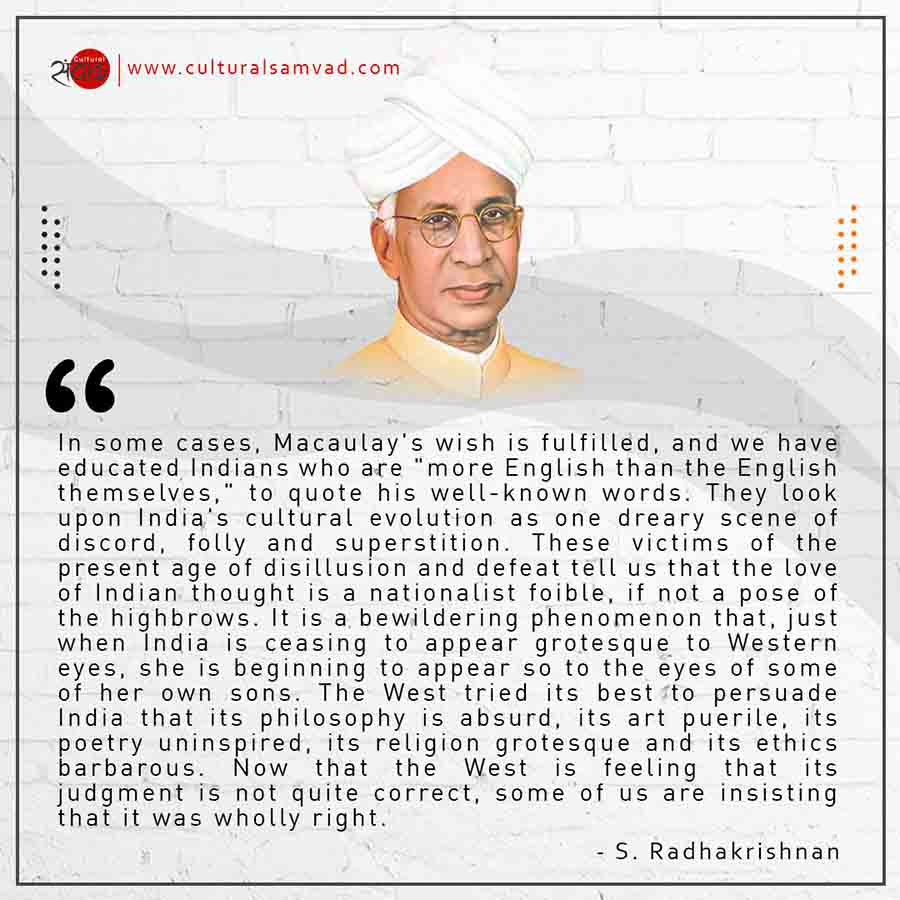
To my mind, both extreme positions are simply untenable. ‘There is much to be said for these views; but the history of Indian thought, when rightly studied, will lead us to regard the two as equally defective. Those who condemn Indian culture as useless are ignorant of it, while those who commend it as perfect are ignorant of any other. The radicals and the conservatives, who stand for the new hope and the old learning, must come closer and understand each other.’
‘The conservatives are convinced of the glory of the ancient heritage and the godlessness of modern culture; the radicals are equally certain of the futility of the ancient heritage and the value of naturalistic rationalism.’ ‘. Our system of thought must act and react on the world progress. Stagnant systems, like pools, breed obnoxious growths, while flowing rivers constantly renew their waters from fresh springs of inspiration. There is nothing wrong in absorbing the culture of other peoples; only we must enhance, raise and purify the elements we take over, fuse them with the best in our own.’
I sometimes think that ‘In some cases, Macaulay’s wish is fulfilled, and we have educated Indians who are “more English than the English themselves,” to quote his well-known words. Naturally some of these are not behind the hostile foreign critic in their estimate of the history of Indian culture. They look upon India’s cultural evolution as one dreary scene of discord, folly and superstition.’
‘These victims of the present age of disillusion and defeat tell us that the love of Indian thought is a nationalist foible, if not a pose of the highbrows. It is a bewildering phenomenon that, just when India is ceasing to appear grotesque to Western eyes, she is beginning to appear so to the eyes of some of her own sons. The West tried its best to persuade India that its philosophy is absurd, its art puerile, its poetry uninspired, its religion grotesque and its ethics barbarous. Now that the West is feeling that its judgment is not quite correct, some of us are insisting that it was wholly right. While it is true that it is difficult in an age of reflection to push men back into an earlier stage of culture and save them from the dangers of doubt and the disturbing power of dialectic, we should not forget that we can build better on foundations already laid than by attempting to substitute a completely new structure of morality, of life and of ethics. We cannot cut ourselves of from the springs of our life. Philosophical schemes, unlike geometrical constructions, are the products of life. The heritage of our history is the food that we have to absorb on pain of inanition.’
Question:
Is there place for philosophy and religion in contemporary times?
Answer:
‘Philosophy has for its function the ordering of life and the guidance of action. It sits at the helm and directs our course through the changes and chances of the world. When philosophy is alive, it cannot be remote from the life of the people.’ ‘Philosophy is a world-view based on reflection and experience. Thought, when it thinks itself out to the end, becomes religion by being lived and tested by the supreme test of life. The discipline of philosophy is at the same time the fulfilment of a religious vocation.’
Religion embraces ‘within its scope the whole nature of man, his intelligence as much as his practical and emotional aspirations.’
‘The problem facing Indian Philosophy to-day is whether it is to be reduced to a cult, restricted in scope and with no application to the present facts, or whether it is to be made alive and real, so as to become what it should be, one of the great formative elements in human progress, by relating the immensely increased knowledge of modern science to the ancient ideals of India’s philosophers.’ ‘Logic and science, philosophy and religion are related organically.’ ‘Every system of thought developed in India offered its own theory of knowledge, interpretation of nature and mind, ethics and religion. Our knowledge of the universe has grown enormously under the guidance of the natural sciences, and we cannot afford to be satisfied with any restricted outlook on life. The future attempts at philosophic construction will have to relate themselves to the recent advances of natural science and psychology.’
‘Loyalty to the spirit of the previous systems of thought, as well as the mission of philosophy, requires us to possess an outlook that always broadens. Indian philosophy acquires a meaning and a justification for the present only if it advances and ennobles life. The past course of Indian philosophic development encourages us in our hope.’
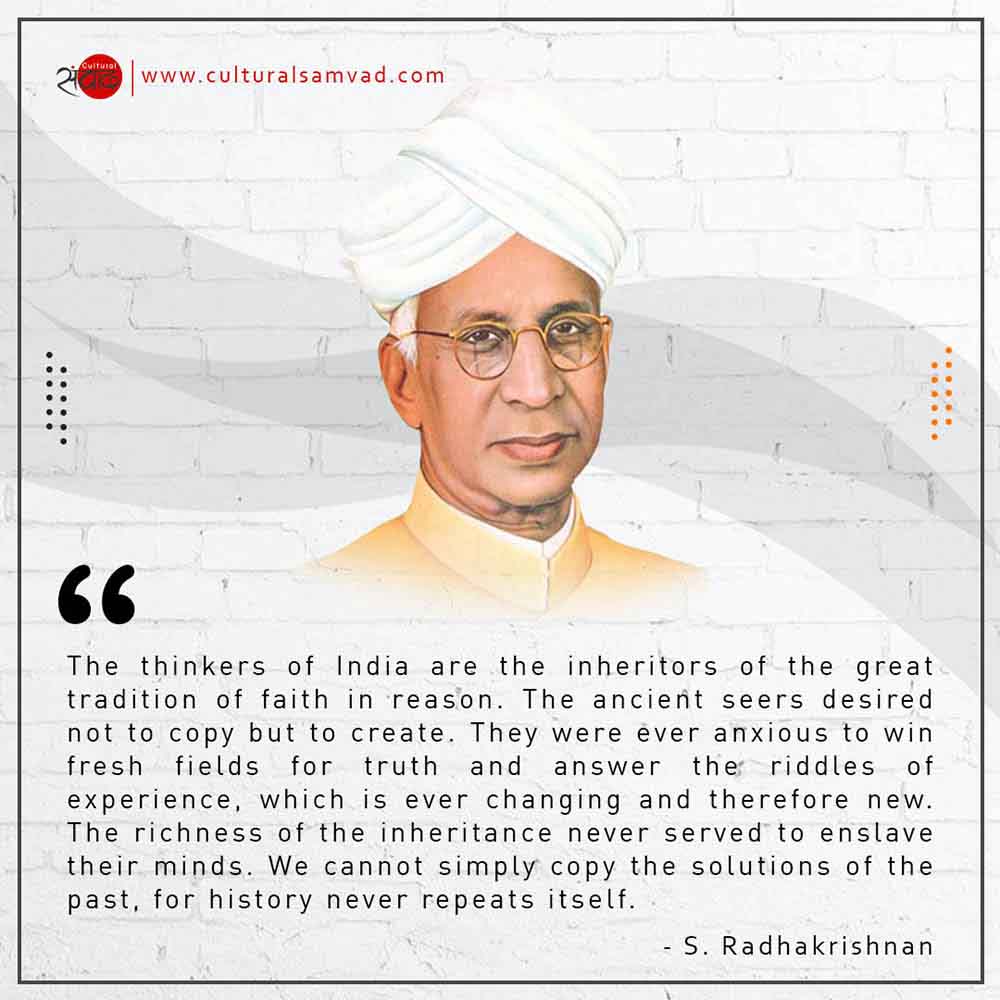
Question:
If you had to leave us with a final message, what would it be?
Answer:
‘The thinkers of India are the inheritors of the great tradition of faith in reason. The ancient seers desired not to copy but to create. They were ever anxious to win fresh fields for truth and answer the riddles of experience, which is ever changing and therefore new. The richness of the inheritance never served to enslave their minds. We cannot simply copy the solutions of the past, for history never repeats itself.’
‘The great thinkers, Yajnavalkya and Gargi, Buddha and Mahavira, Gautama and Kapila, Samkara and Ramanuja, Madhva and Vallabha, and scores of others are India’s grandest title to existence, a clear testimony of her dignity as a nation with a soul, the proof that she may yet rise above herself and the pledge of this supreme possibility.’
To summarise, Indic philosophy and religion have to reinterpret tradition to make it relevant to the advancements of modern science and broaden their horizons. This is not a new course of action. It will be undertaken in the current times as was undertaken in all times past. The soul of India has been faithful to tradition while being eternally hopeful for the future.
Select References:
- Radhakrishnan S. Indian Philosophy, Volume 2. Oxford University Press, 2008.
- “Radhakrishnan of India, Philosopher, Dead at 86″. New York Times. 17 April 1975.
Note:
5th September is celebrated as Teachers’ Day in India to honour Dr. Sarvepalli Radhakrishnan.
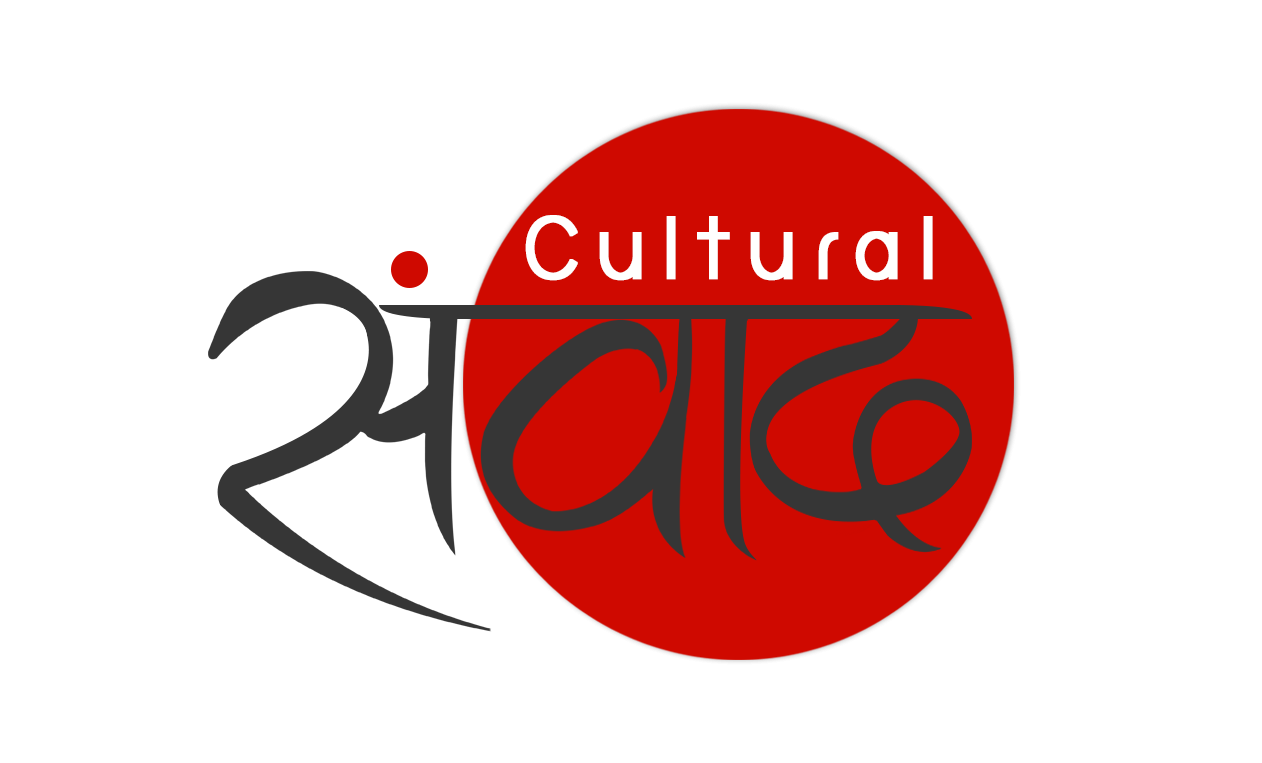

Add comment